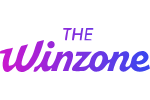Best Florida Online Casinos 2026
Play at the best online casinos in Florida for free. We’ve ranked the top sweepstakes casinos and offers for Florida players.
Our Recommended Online Casinos in Florida
- 1Must be 18+ to participate. Void in CT, DE, ID, KY, LA, MI, NV, NY, RI, WA, and WV.
- 2Must be 21+ to participate. T&Cs apply. Void in CT, DE, ID, KY, LA, MI, MS, MT, NJ, NV, NY, PA. RI, WA and WV.
- Must be 18+ to participate. T&Cs Apply. Void in ID, LA, MI, MT, NV, & WA.
- 4Must be 18+ to participate. T&Cs apply. Void in CT, ID, MI, MT, NV and WA.
- 5Must be 18+ to participate. T&Cs Apply. Void in CT, ID, LA, MI, MD, MT, NV, NY, and WA.
- 6Must be 18+ to participate. T&Cs Apply. Void in CT, ID, LA, MD, MI, MT, NJ, NV, and WA.
- Must be 18+ to participate. Void in ID, KY, MI, NJ, NV and WA.
- 8Must be 18+ to participate. T&Cs Apply. Void in CT, DE, GA, ID, LA, ND, NE, NJ, NV, NY, MI, MT, and WA.
- 9Must be 21+ to participate. T&Cs apply.
- 10Must be 18+ to participate. T&Cs Apply. Void in CT, DE, ID, KY, LA, MD, MI, MT, NJ, NV, NY, WA, and WV.
- 11Must be 18+ to participate. T&Cs Apply. Void in CT, ID, LA, MD, MI, MT, NV, NJ, NY, and WA.
- 12Must be 21+ to participate. T&Cs Apply. Void in CT, DE, ID, KY, LA, MD, MI, MT, NJ, NV, NY, RI, PA, WA and WV.
- Must be 18+ to participate. T&Cs Apply. Void in CT, DE, ID, LA, MI, MT, NY, RI, WA, WV, and WY.
- Must be 18+ to participate. T&Cs Apply. Void in CT, ID, LA, MI, MT, NJ, NV, and NY.
- Must be 21+ to participate. T&Cs Apply. Void in AL, CT, DE, ID, KY, LA, MI, MT, NJ, NY, NV, OH, PA, WA and WV.
- 16Must be 18+ to participate. T&Cs Apply. Void in AL, CT, DE, GA, ID, KY, LA, MD, MI, MT, NV, NJ, NY, PA, WA and WV.
- 17Must be 21+ to participate. Terms Apply. Void in CA, CT, DE, ID, KY, LA, MD, MI, MT, NJ, NV, NY, OH, WA and WV.
- 18Must be 18+ to participate. Not available in CA, CT, DA, ID, KY, LA, MD, MI, MS, MT, NV, NY, NJ, PA, RI, WA, WV. Void where prohibited by law. T&Cs Apply.
- 19Must be 18+ to participate. T&C apply.
- 20Must be 21+ to participate. T&Cs Apply. Void in CA, CT, DE, ID, KY, LA, MD, MI, MT, NJ, NY, NV, WA and WV.
- Must be 18+ to participate. Void in CT, DE, ID, KY, MI, MT, NJ, NV, NY, WA and WV.
- 22Must be 18+ to participate. T&Cs Apply. Void in CT, DE, ID, MI, MT, NJ, NV, NY, and WA.
- Must be 18+ to participate. T&Cs Apply. Void in CT, DE, ID, LA, MD, MI, MT, NV, NJ, NY, PA, RI, WA, and WV
- 24Must be 18+ to participate. Not available in AZ, CA, CT, DC, DE, ID, KY, LA, MD, MI, MS, MT, NJ, NV, NY, PA, RI, WA and WV. Void where prohibited by law. T&Cs Apply.
- 25Must be 18+ to participate. T&Cs Apply. Void in CT, DE, ID, MI, MT, NJ, NV, NY, and WA.
- 26Must be 18+ to participate. T&Cs Apply. Void in AL, CT, DE, GA, ID, KY, LA, NJ, NY, PA, WA, and WV.
- 27Must be 18+ to participate. T&Cs Apply. Void in CT, DE, HI, ID, LA, MI, MT, NJ, NV, NY and WA
- 28Must be 18+ to participate. T&Cs Apply. To Claim, Open Up Live Support. Void in CT, DE, ID, KY, LA, MI, MT, NJ, NV, NY, WA and WV.
- 29Must be 18+ to participate. T&Cs Apply. Void in CT, DE, ID, LA, MI, MT, NY, RI, WA, WV, and WY.
- 30Must be 18+ to participate. T&Cs Apply. Void in CT, DE, ID, LA, MI, MT, NJ, NV, NY, RI, WA, WV, and WY.
- Must be 21+ to participate. Terms apply. Void in CA, CT, DE, ID, KY, LA, MD, MI, MT, NJ, NV, NY, WA, and WV.
- 32Must be 21+ to participate. T&Cs Apply. Void in CA, CT, DE, ID, KY, LA, MD, MI, MT, NJ, NY, NV, WA and WV.
- 33Must be 18+ to participate. T&Cs Apply. Void in CT, DE, ID, LA, MI, MT, NY, RI, WA, WV, and WY.
- 34Must be 18+ to participate. T&Cs Apply. Void in AR, CT, GA, ID, MA, MD, MI, MS, MT, NC, NJ, NV, NY, PA, RI, WA and WV.
- 35Must be 18+ to participate. T&Cs Apply. Void in CT, DE, ID, LA, MI, MT, NJ, NY, RI, WA, WV, and WY.
- 36Must be 18+ to participate. T&Cs Apply. Void in CT, DE, GA, ID, MI, MT, NJ, NV, NY and WA.
- 37Must be 18+ to participate. T&Cs Apply. Void in AK, AL, AZ, CA, CT, GA, ID, KY, LA, MI, MS, MT, NJ, NV, NY, OH, TN, and WA.
- 38Must be 21+ to participate. T&Cs Apply.
- Must be 18+ to participate. T&Cs Apply. Void in CT, ID, LA, MI, MT, NV, NY, and WA.
- 40Must be 18+ to participate. T&Cs Apply. Void in AL, AZ, CT, DE, GA, ID, KY, LA, MD, MI, MS, MT, NV, NJ, NY, PA, RI, WA, WV, and WY.
- 41Must be 18+ to participate. Void in CT, DE, ID, KY, LA, MI, NV, NY, RI, WA, and WV.
- 42Must be 18+ to participate. T&Cs Apply. Void in CT, DE, HI, ID, LA, MD, MI, MT, NJ, NV, NY, VA and WA.
- 43Must be 21+ to participate. T&Cs Apply. Void in AZ, CT, DE, ID, KY, LA, MD, MI, NJ, NV, NY, PA, RI, VT, WA, and WV.
- 44Must be 18+ to participate. T&Cs Apply. Void in CT, DE, ID, LA, MI, MT, NY, RI, WA, WV, and WY.
- 45Must be 21+ to participate. T&Cs apply. Void in AL, AZ, CA, CT, ID, LA, MD, MI, MS, MT, NJ, NV, NY, TN, WA and WV.
Florida Online Gambling at a Glance
| Online Gambling | Status |
|---|---|
| Sweepstakes Casinos | Legal |
| Real Money Casinos | Not Legal |
| Sportsbooks | Legal |
| Poker | Not Legal |
| DFS | Legal |
Are Online Casinos Legal in Florida?
Real-money online casinos are not legal in Florida. However, you can play at Florida sweepstakes casinos, which offer games like slots, blackjack and roulette with the opportunity to win real cash prizes.
When Will Florida Legalize Real Money Online Casinos?
There is no timeline for Florida to legalize real money online casinos as of February 2026.
The state’s current gaming compact with the Seminole Tribe does not include online casino gaming, and a Florida constitutional amendment requires that any expansion of casino gambling be approved through a statewide voter referendum.
Because of these significant political and legal hurdles, it is unlikely that real-money online casinos will launch in Florida in the near future.
Responsible Gambling in Florida
Gambling should always be a fun and entertaining activity.
If gambling becomes a problem, these resources in Florida can offer support and help you take back control:
Florida Problem Gambling Helpline from Playwise: 1-833-PLAYWISE
Florida Gambling Addiction Hotline: (844) 779-2637
Gamblers Anonymous Florida Hotline: 855-222-5542
Problem Gambling Help in Florida: 1-800-MY-RESET
Florida Council on Compulsive Gambling: 888-ADMIT-IT
Why You Can Trust Gambling.com’s Florida Online Casino Reviews
With two decades of experience, we only recommend the best online casinos in Florida for sweepstakes play.
- Choice – We’ve reviewed 40+ verified sweepstakes sites in Florida, giving you plenty of reliable options to explore.
- Insight – We provide simple guides from industry experts and experienced players to help you play smarter.
- Integrity – We follow strict editorial guidelines to ensure that our Florida sweepstakes casino reviews are accurate, clear, and independent.
- Reviews – We deliver impartial Florida online casino reviews and ratings, backed by real user feedback.
- Safety – We only feature Florida online casinos that meet key US consumer protection standards.
- Responsibility – We promote safe gambling, with clear advice to help you stay in control.
Florida Online Casino FAQs
Can I play online casinos in Florida?
You can play online sweepstakes casinos in Florida and win cash prizes, but real-money Florida casinos are not legal. Florida does not currently regulate or license online casino gambling, and players cannot wager real money on traditional casino games.
How old do I have to be to play at online casinos in Florida?
You must be at least 18 to play at online sweepstakes casinos in Florida, although some sites require players to be 21 or older. Players may also be required to verify their identity and age before playing or withdrawing any cash prizes.
Will Florida tax my gambling winnings?
No. Florida does not have a state income tax, so you won’t pay any state tax on your gambling winnings. However, gambling winnings are taxed at the federal level as part of your income. Certain payouts, often starting around $600, depending on the game, may trigger additional IRS reporting requirements.























































